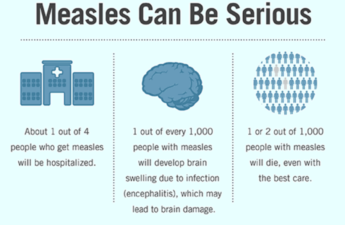60% of baby and toddler food doesn’t meet nutrition standards, study finds
Researchers noted that 1 in 4 products did not meet calorie requirements and that 1 in 5 exceeded recommended sodium levels.
About 60 percent of packaged baby food sold in the United States doesn’t meet nutritional standards established by the World Health Organization, according to research published recently that opens a window into the role that inadequate diet poses in children’s health. WashPost.

High school football has become a public health crisis. It’s time to take action | US sports
Six teenagers have now died while playing school football in less than three weeks. This astonishing rash of football-related school deaths should be understood as nothing less than a public health emergency. It is also a clarion call to question why we are exposing our young people to such a dangerous activity at all, much less in institutions designed to care for and nurture them… Guardian.
Parenting stress is a health issue – US surgeon general’s advisory report
Parents’ wellbeing declared a ‘critical health priority’ as stressors such as finances and child safety plague parents
… According to the advisory, parents are overworked and also spend a great deal of hours on childcare. “Demands from both work and child caregiving have come at the cost of quality time with one’s partner, sleep and parental leisure time,” reads the advisory. Guardian.

Catching up on sleep at weekends may lower heart disease risk by a fifth – study
People with most compensatory sleep up to 20% less likely to develop heart disease than those with the least
… Those who got extra sleep at weekends ranged from an additional 1.28 hours to 16.06 hours, and those with the least sleep were losing 16.05 hours to 0.26 hours. The study also looked at a sub-group of people with daily sleep deprivation and found that those who had the most compensatory sleep at the weekend had a 20% lower risk of developing heart disease than those with the least. Guardian.
Death toll rises to 9 in Boar’s Head-linked listeria outbreak, CDC says
The outbreak, which also left dozens hospitalized, is the largest in the United States in more than a decade, according to the agency.
Nine people have died and 57 have been hospitalized in a nationwide listeria outbreak linked to recalled Boar’s Head deli meat, the Centers for Disease Control and Prevention said Wednesday, describing it as the largest such outbreak in the United States since 2011. WashPost.
Covid associated with increased risk for hearing loss in young adults
The incidences of hearing loss and sudden deafness were higher for people who had covid than those who did not, a new study reports.
… The incidence of hearing loss was 3.44 times higher for people who had covid than for those who did not. Similarly, the incidence of sudden sensorineural hearing loss, also known as sudden deafness — an unexplained loss of hearing all at once or over a few days — was 3.52 times higher for people who tested positive for the coronavirus. WashPost.
What to Know About E.E.E., a Rare Mosquito-Borne Illness
Eastern equine encephalitis has caused one death in New Hampshire, and the virus has also been identified in humans in four other states, health officials said.
… The disease, like West Nile virus, is transmitted by mosquitoes, but E.E.E. has a higher death rate and is more rare. It is not contagious from person to person. Most people who get the virus do not get the disease. But for those who do, there is no treatment, and about 30 percent die, according to the Centers for Disease Control and Prevention. Many people who survive the illness have continuing neurological problems. NYT.
What to know about ‘sloth fever’ as U.S., Europe warn of imported cases
Twenty cases of the Oropouche virus disease were reported in Florida and one in New York. Symptoms include fever and aches, and the virus poses a particular risk to pregnant women.
More cases of the Oropouche virus disease, also known as sloth fever, are being reported in the United States this year among travelers returning from Cuba and Brazil. The viral disease, which is spread by small flies and some types of mosquitoes, can cause a sudden fever and aches, among other symptoms. There are no vaccines or medicines to treat the disease. While cases have been reported worldwide — including 21 in the United States and 19 in Europe — deaths are rare, and there is no evidence of local transmission within those two areas. WashPost.
Opinion: The Mpox Crisis Is Much Bigger Than Mpox
… The lessons from the mpox outbreak are clear: Health crises cannot be effectively managed without addressing the broader societal context. The world must recognize that in places like Congo, where conflict and disease intersect, public health interventions must be coupled with efforts to resolve conflict, rebuild communities and restore dignity to those affected. In the absence of such an intersectional response, conflict regions are likely to be hot spots of health crises once again. We want nothing more than for the memories of those suffering from this terrible disease to be just that: memories. NYT.


